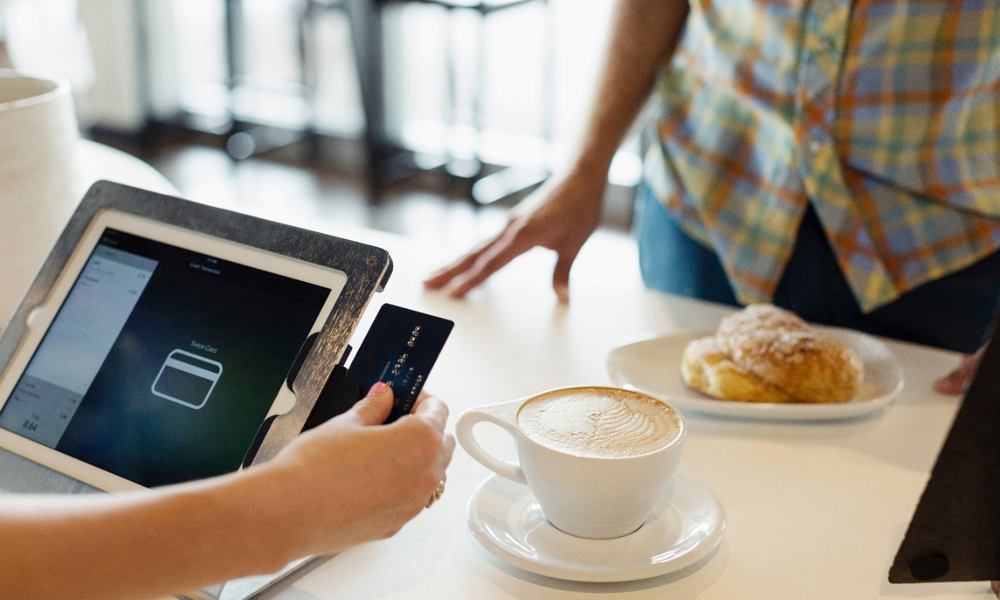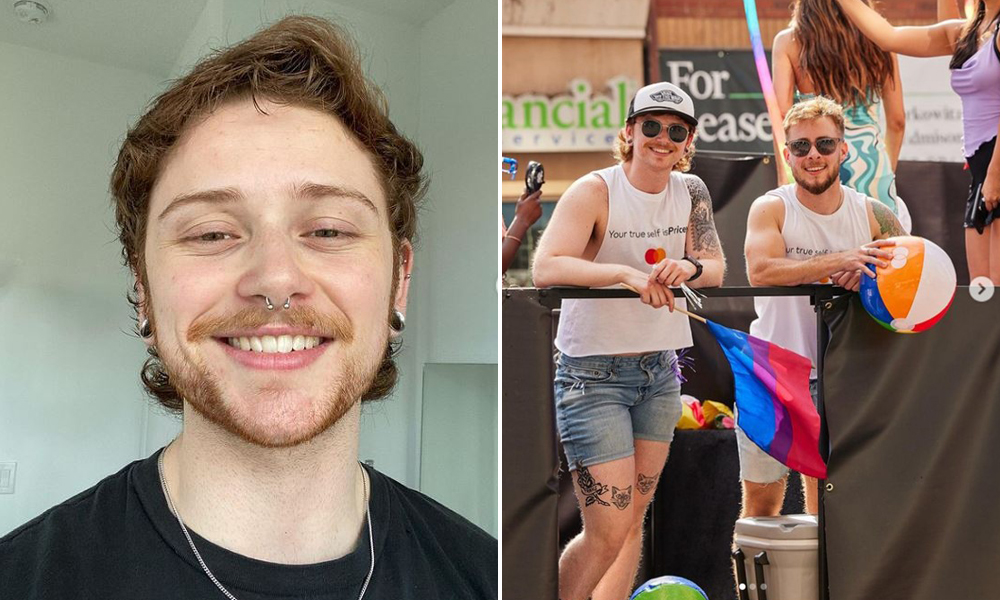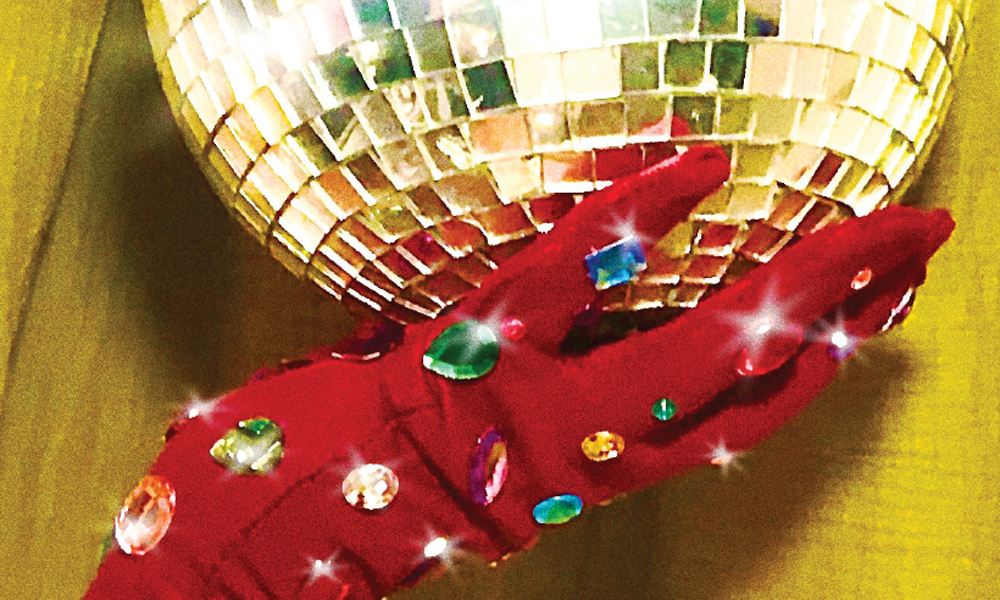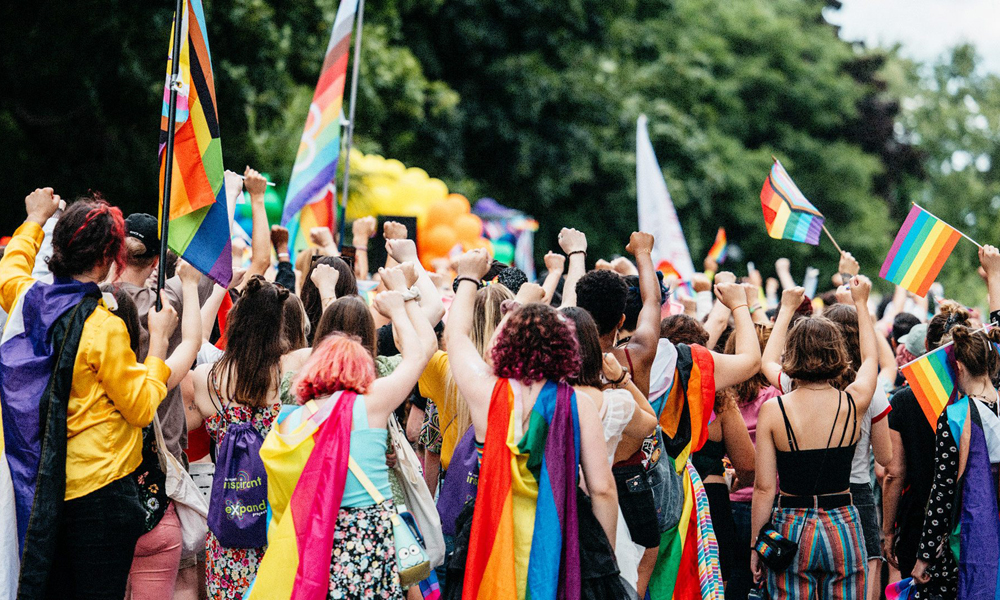“Seeing a name that you connect with, it feels like acceptance”
By Courtney Hardwick
A name is a powerful thing. It carries a connection to our personal history and constantly evolving identity. But for some transgender and nonbinary people, the name they were given at birth is attached to someone they never really recognized and memories they’d prefer to leave behind. That’s why so many trans people choose a different name, one they feel better reflects who they are. A name they can build their authentic selves around – and be proud of. Unfortunately, it isn’t always easy to ensure that your chosen name is the one the world uses.
A legal name change can be time-consuming and costly. Not everyone has the resources or support to go through the process, which means some have to use an ID that doesn’t match their chosen name. A recent study conducted by Mastercard found that 90 per cent of trans and nonbinary people have used a form of identification that didn’t match their name or gender identity. The experience made 48 per cent feel anxious, 45 per cent feel embarrassed and 42 per cent feel frustrated.
The importance of a legal name goes beyond essential ID like a driver’s licence, health card or passport. Using a credit card with the wrong name on it can be a source of stress for trans and nonbinary people because it can lead to uncomfortable questions and even potentially dangerous situations if they are outed in public. That’s why, in 2019, Mastercard introduced the True Name feature, an option that allows credit card holders to put their chosen name on their card without first going through the legal name change process.

The feature has been so well received by the trans and larger LGBTQ+ community that earlier this year, BMO became the first financial institution to make the feature available to Canadians. Sasha Krstic, president of Mastercard Canada, says the True Name feature is designed to help ease the feelings of vulnerability that trans and nonbinary individuals face every day as they navigate the world. Krstic calls the feature an important part of Mastercard’s “commitment to develop and offer innovative solutions that help advance financial inclusion and create meaningful solutions for consumers everywhere.” Mastercard is encouraging other financial institutions to follow in their footsteps and make a change that has the power to improve the day-to-day lives of their trans and nonbinary customers.
To some, the name on their credit card isn’t something they ever think about, but for a trans or nonbinary person who has struggled to figure out who they are, it can mean the world. Every affirmation of their chosen name – their chosen identity – is a step in the right direction.
Here’s how three transgender Canadians feel about being able to use their chosen name and what the True Name feature by Mastercard means to them.

Asher DiGiuseppe, 25
Visual Artist from Toronto
Chosen Identity: Trans Masculine, He/Him
Asher DiGiuseppe, a 25-year-old trans-masculine visual artist from Toronto, knows what it’s like to be hyper-aware of the disconnect between who you are and how other people perceive you. “It’s very disheartening to know who you are, to have figured it out, and then to feel like nobody else will see that and nobody else does see that. It’s scary, it’s embarrassing.”
Being deadnamed (or being called by a name the individual no longer uses, usually the one given to them at birth) is something most trans and nonbinary people experience. A person’s “deadname” may remind them of a past they want to move away from, a past that could include trauma and painful memories of a confusing time in their lives. “Deadnaming is so harmful because it is a quick and easy way for someone to say, ‘I don’t see you how you see yourself, I don’t respect the choice you’ve made to use a different name, and I will continue to be ignorant on why this is such an important thing to you.’ It makes you feel like you’re not even worth the effort,” says DiGiuseppe.
DiGiuseppe, who has personally gone through the process of officially changing his legal name and his gender marker, knows having that opportunity is a privilege, and it’s one he is grateful for. “Being able to use your chosen name is important because it is something that represents you to the rest of the world. It’s something that cis people take for granted, not having to fight to be acknowledged for who you are,” says DiGiuseppe. “It’s a right that all people should have, regardless of how they identify.”
For DiGiuseppe, the True Name feature by is a huge weight off his shoulders. “I no longer have to worry about being misgendered or finding myself in potentially dangerous situations when presenting a piece of ID that seemingly doesn’t match my appearance,” he says. “It means that I can put my focus back into myself, my hobbies and my work. It freed up the space in my mind that was constantly struggling with being misgendered, and allowed me to grow and become the best version of myself.
“Seeing a name that you connect with, it feels like acceptance,” says DiGiuseppe. “Being seen and being acknowledged as the person that you are – it’s the best feeling in the world. It will change lives.”

Maya Henry, 26
Actor and Content Creator from Toronto
Chosen Identity: Woman, She/Her
From getting into a bar to managing a student loan, IDs are a part of day-to-day life. That’s why have an ID with the wrong name on it can be such a source of anxiety for trans and nonbinary people. Maya Henry, a 26-year-old Toronto-based actor and content creator, remembers what it was like to use cards with her deadname on them. “In the past I had to use cards with my old identity to get into certain venues. I lived in constant fear when security would look over my old ID and then look at the woman before them. I never knew if it would be the day they refused me and turned me away, or worse,” Henry says.
Transitioning can be a long process, and part of that process is choosing a new name. When that name isn’t acknowledged, casually or on official documents, it can be triggering. “Deadnaming brings back painful memories of what life was like before transitioning, but it also disregards the journey that a trans or nonbinary person has undertaken in order to become their authentic self,” says Henry. “Deadnaming is a concerted effort to devalue someone’s trans identity by implying that they refuse to acknowledge [the trans person’s] transition and honour them as they are.”
For Henry, the True Name feature by Mastercard is an important step towards acknowledging the struggles trans and nonbinary people go through — and offering a solution that makes a difference. Along with big corporations like Mastercard, we all have a responsibility to do our part. “Every voice that stands beside us strengthens us and makes us feel that much safer,” she says. “Whether you have a co-worker who is being treated poorly, or you see someone on transit being harassed: if you step in and become a part of the solution instead of a bystander, you are helping to make our world that much safer and more welcoming.”
“Having my ID reflect who I am means safety, authenticity and validation,” says Henry. “It has brought so much peace and comfort to my life. Most of all, I am brought dignity and respect for the journey I have taken.”

Jordan Adrienne, 27
Model and Content Creator from Toronto
Chosen Identity: Woman, She/Her
For Jordan Adrienne, a 27-year-old model and content creator from Toronto, being able to use her chosen name in all aspects of her life is essential. “It represents who you are and where you’re at in your journey to finding yourself,” she explains. Many trans and nonbinary people take years to come out and feel comfortable being public about who they are, not only in front of their friends and family but in front of the world. A chosen name is a representation of the person they want the world to see.
Since credit cards are a part of day-to-day life for many people, a deadname may be unavoidable — and so are the feelings that come with it. “It is hard to move forward when you’re constantly being reminded of a past version of yourself that was never truly fitting to begin with,” says Adrienne. “When the light bulb goes off in your head and you finally start to live as your authentic self,” she says, people do a disservice to you if they refer to you by your deadname instead of your chosen name. “It feels like the new chapter you’re in is not being taken seriously.”
Adrienne has gone through the process of legally changing her name, and knows how much the True Name feature by Mastercard will mean to trans and nonbinary people who haven’t had that opportunity yet. “I know from experience how difficult and strenuous it was to change my name and my gender across all my IDs. Had I had the option to use the True Name feature back then, it would have made things much easier and more gratifying,” she says. “I’m glad the generations that come after me will have the option and the support from companies like Mastercard.”






POST A COMMENT